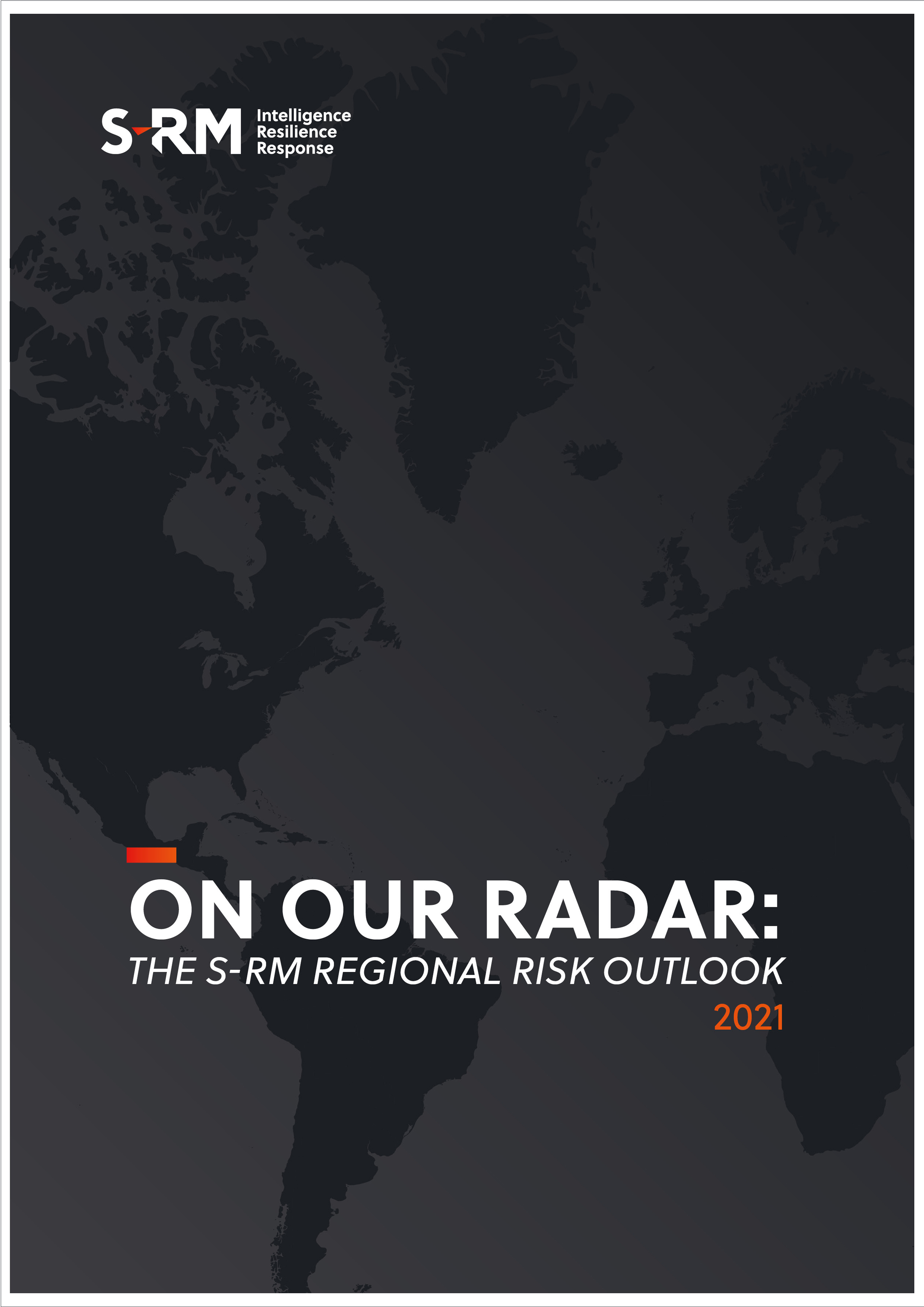Since the last presidential elections in May 2020, Belarus has seen the largest protests since its independence in 1991. Although Belarus is in many ways an outlier in the Former Soviet Union (FSU) region, with its almost fully state-controlled economy and very close political and economic alignment with Russia, the implications of the domestic political unrest in the country for the broader region should not be ignored. However, how the region responds to turbulence in Belarus will depend on a number of potential future trajectories, and on the domestic considerations and pressures each country will have to contend with back home.
For additional insights from Cvete, tune into Episode 10 of S-RM Insider, available wherever you get your podcasts.
The spark
The demonstrations were triggered by long-standing president Aleksandr Lukashenko declaring a victory and securing a sixth consecutive term as the head of state. Opposition candidate, Sviatlana Tsikhanouskaya, rejected the results, accusing the authorities of electoral fraud and rigging the elections. Fearing for her safety, Tsikhanouskaya went into exile in Lithuania, but that did not prevent thousands from going out onto the streets of the capital Minsk and other cities to demand a new election.
While accusations of electoral fraud are common in the emerging democracies in the wider Former Soviet Union (FSU) region, in Belarus they pose a potentially existential threat to Lukashenko’s regime. In more competitive political systems, such as those in Ukraine or Georgia, losing parties often accuse the government of electoral fraud, but they rarely lead to mass protests. However, Lukashenko’s uncompetitive regime relies on the semblance of electoral legitimacy to justify his continued dominance of the country’s politics. Lukashenko is not the only leader in the region in this position, the similarly long-standing presidents of Azerbaijan, Tajikistan or Turkmenistan will be considering the Belorussian protests with concern.
Lukashenko’s uncompetitive regime relies on the semblance of electoral legitimacy to justify his continued dominance of the country’s politics.
That is why the authorities in Belarus responded with disproportionate force to the overwhelmingly peaceful protests after the election, aiming to stop the demonstrations through intimidation and violence. However, the protests have continued, and are expanding to include social groups initially uninvolved in the opposition protests, such as pensioners and factory workers. They have also sparked the interest of civil society and interest groups based in neighbouring countries, such as Ukraine. Combined, these factors will see commercial operators and investors facing growing uncertainty in Belarus and beyond.
Lukashenko’s performance in presidential elections

Where to from here?
In the short-term, the key scenarios to watch revolve around the fate of Lukashenko and his regime. If he cedes to popular demands for another election under closer international observation, the opposition has a strong chance of winning. Unseating Lukashenko after almost thirty years in power will lead to a period of significant uncertainty. There will be volatility as the new government negotiates the foundations of post-Lukashenko political and economic systems. How the new administration will balance the relationships with Russia and the West externally – as well as domestic demands for more democracy and human rights – with the need to maintain social peace, is going to determine the country’s future trajectory. Other states in the region will be looking to establish relationships with the new government and the regional balance of power is likely to tilt in favour of closer alignment with the EU and the West.
If Lukashenko’s regime ends, other states in the region will try to establish relationships with the new government and the regional balance of power is likely to tilt in favour of closer alignment with the EU and the West.
Even if Lukashenko stays in power, things will not return to the status quo ante. The intimidation and abuses by state security forces during the protests have permanently damaged the legitimacy of the government, among individuals and businesses. In response to popular pressure, there might be some cosmetic changes to the political system, but they will come well short of fully democratic rules. As a result, popular discontent is likely to persist and grow. Increased spending to buy social peace will be difficult to fund through international markets. In addition, Lukashenko will need the acquiescence of the managerial elites at major state-owned companies that are the main employers in Belarus. Although traditionally much more compliant than ‘oligarchs’ in neighbouring Russia, they are unlikely to be fully loyal to Lukashenko. Many may back the opposition, and prospects for privatisation and the opening up of the economy, driving further uncertainty over the state of the business environment. Another Lukashenko term will not provide much reassurance to other non-democratic leaders in the region, who will be witnessing the increasingly difficult task of maintaining authority and the growing need to rely on security forces to secure his stay in power.
longest serving heads of state and government

Economic damage
Inevitably, prolonged unrest and the political volatility that follows it are bad for the economy and the commercial environment. With strikes and protests in Belarus spreading to factories, disruptions to businesses operations have become more frequent over the past few months. The longer the protests continue, the worse the impact on business will be.
Beyond the immediate operational and security implications stemming from the unrest, businesses are facing a broader dilemma in Belarus. As the domestic crisis evolves and expands to include external actors, such as the EU and the US, and with an increasing likelihood of further and stricter Western sanctions against Lukashenko’s administration, many will be reconsidering their continued presence in Belarus. In August 2020, around 300 IT-sector leaders based in Belarus issued a letter to the government threatening to leave the country if political violence continues and demanding the release of political prisoners.[1] Many IT sector workers have been leaving the country, some to neighbouring Ukraine, others to EU countries, especially Poland and the Baltic states. For the booming IT sector, it is not only regular internet outages and the exodus of high-skilled talent that raises concern. Prospects of sanctions are equally concerning, as is the significant reputational risk stemming from implicitly endorsing the current administration despite allegations of violence and violations of human rights against protesters and opposition supporters.
As the domestic crisis evolves and expands to include external actors, such as the EU and the US, and with an increasing likelihood of further and stricter Western sanctions again Lukashenko’s administration, many will be reconsidering their continued presence in Belarus.
Any departures, especially in the high-tech and export-oriented sectors such as IT and complex manufacturing will lead to a further deterioration of the overall economic situation. The IT sector is estimated to comprise around 6% of the country’s GDP, with forecasts of a rise to 10% in a few years’ time.[2] Should these companies follow through on their threats to leave Belarus, the impact on the economy will be significant. This will lead to further protests, ultimately fuelling a vicious cycle of unrest, political instability and economic problems.
Broader regional implications
In neighbouring Ukraine, civil society organisations have been busy supporting and welcoming Belarussian protesters escaping from persecution. The government’s position has been more cautious, although it too refused to recognise the Belarussian election results as legitimate. However, pressure from domestic civil society, currently focused on events in Belarus, is likely to spill into the domestic arena in the coming months. As activists documenting human rights violations and poor rule of law in Belarus turn their gaze on domestic developments, they are likely to see the shortcomings of Ukrainian political elites and demand better governance at home.
Other governments in the FSU region have been cautious in their reaction to the events in Belarus. Most FSU states, with the exception of Georgia and the three Baltic states, have recognised Lukashenko’s electoral victory. Very few of the current heads of state and government in the region have sympathy for popular protests and opposition movements demanding more democracy and human rights. Even those who came in power on the back of mass protests, such as Armenia’s prime minister, Nikol Pashinyan, are reluctant to endorse the opposition in Belarus. To many these events are reminiscent of the ‘coloured revolutions’ that swept the region more than a decade ago and few would be keen to see them repeated.
Very few of the current heads of state and government in the region have sympathy for popular protests and opposition movements demanding more democracy and human rights.
Therefore, we are unlikely to see further democratic reforms and significant moves towards more transparent and competitive business environments in the region. Instead, further tightening of authoritarian governance and deepening of vested business interest in politics are likely to persist, exacerbating the complex operational and reputational environment for those considering or re-evaluating their footprint in these jurisdictions.
References:
[1] ‘300 Belarus IT CEOs threaten to move their business out of the country unless violence ends, new elections are held’, BNE Intellinews, 13 August 2020.
[2] ‘Belarus crackdown threatens flourishing tech sector’, Financial Times, 2 September 2020.



 Email Cvete
Email Cvete





 @SRMInform
@SRMInform
 S-RM
S-RM
 hello@s-rminform.com
hello@s-rminform.com

